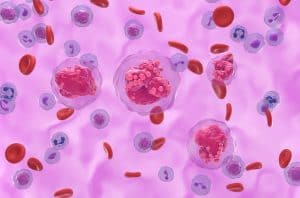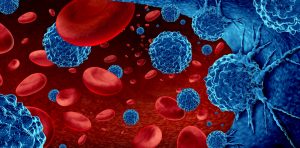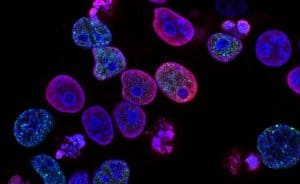Antisoma stages comeback with promising cancer drugs
pharmafile | May 20, 2010 | News story | Research and Development | AML, Antisoma, chemotherapy, leukaemia
UK biotech Antisoma is looking to put previous late-stage trial failures behind it by focusing on two new cancer drugs.
The company suffered a significant blow in March when ASA404, a potential lung cancer treatment it was developing with Novartis, failed in phase III trails by showing no survival benefit.
Antisoma is now placing its hopes on AS1413, a potential treatment for acute myeloid leukaemia in phase III, and chemotherapy drug AS1413 that’s in phase IIb.
Chief executive Glyn Edwards, said: “We have two promising cancer drugs, AS1413 and AS1411, both of which we expect to report key trial data during the next year. Having taken measures to reduce our costs, we expect our cash resources to take us well past these trial results.”
These measures included restructuring the business and making headcount reductions. This saw staff numbers cut from 90 to 75, as part of which chief operating officer Dr Ursula Ney and two other members of the senior management team, Julio Gagne and Kevin Kissane, departed the company.
Antisoma’s chemotherapy treatment AS1413 is being tested on patients with secondary acute myeloid leukaemia (AML), with results set to land in early 2011.
Its other leading candidate, AS1411, is the most advanced aptamer in trials for cancer and is currently in a 90-patient phase IIb study in patients with AML.
This follows an earlier phase II trial in AML, which reported positive results, and headline data from the phase IIb study is expected in the first half of next year.
In a joint statement, Edwards and Antisoma chairman Barry Price said the company was determined to bounce back from the disappointment of ASA404.
“We recognise that ASA404 was considered the company’s most significant asset, but we are confident that Antisoma’s strategy of investment in a diversified portfolio of products remains sound. We have had to make tough decisions in light of the ASA404 result, but believe that we have the product assets, people and financial resources to build value for the future,” they said.
The phase II trial of the treatment actually showed considerable success in prolonging life in lung cancer patients, but with a larger sample of more seriously ill patients the results were significantly, and disappointingly, different.
Brett Wells
Related Content

Qlucore and Sahlgrenska Hospital sign agreement for ALL diagnosis software
Qlucore has announced that it has entered into an agreement with Sahlgrenska Hospital, in Gothenberg, …

Eli Lilly’s Jaypirca approved in US for leukaemia and lymphoma treatment
Eli Lilly has announced that the US Food and Drug Administration (FDA) has approved Jaypirca …

Targeted chemotherapy to kill all solid tumours developed in preclinical research
Researchers from the City of Hope organisation in the US have released a study confirming …








